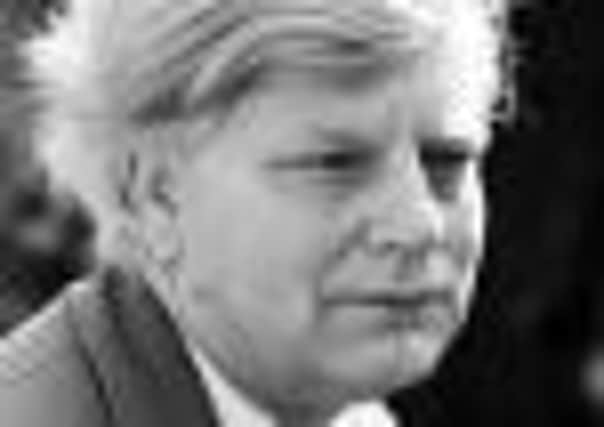Obituary: Professor Sir Michael Dummett, innovative philosopher and academic who campaigned for racial equality


PROFESSOR Sir Michael Dummett was one of the leading academics of the post-war years and one of Britain’s most significant and innovative philosophers. He was an acclaimed lecturer and teacher and a leading campaigner for racial tolerance and equality.
He was, for example, a founding member of the Oxford Committee for Racial Integration in 1965. Logic, language and mathematics were Dummett’s principal philosophical preoccupations and he became an authority on the writings of the 19th-century German mathematician Gottlob Frege, who tried to prove that formal logic could govern all mathematical truths. However, Dummett later wrote of his shock on finding anti-Semitic and fascist opinions in the diaries of Frege, to whom he had devoted so much of his own professional career.
Advertisement
Hide AdAdvertisement
Hide AdDummett is especially recognised for his work on truth and meaning and their implications for the debates between realism and anti-realism – terms about which he wrote widely and helped to explain and make better known. Dummett was also a devoted family man an authority on tarot cards. His wife, Ann, joined him on many of his writing projects.
Michael Anthony Eardley Dummett was the son of a merchant of silks and was a First Scholar at Winchester College and then won a Major Scholarship to study History at Christ Church, Oxford in 1943. He was called up that year and served, initially as a private in the Royal Artillery before joining the Intelligence Corps when he was stationed for his training outside Edinburgh.
His time in Scotland was to prove of great importance to Dummett as he took instruction at the Catholic Chaplaincy at Edinburgh University and was received into the Catholic Church there in 1944. Dummett remained a devout Catholic all his life and looked back on his instruction at Edinburgh as one of the most formative experiences of his life. He was later to write on the many problems facing the contemporary Catholic church in various ecclesiastical magazines..
He served with the Intelligence Corps in India and Malaya and then returned to Oxford to read Philosophy, Politics and Economics – gaining a First in 1950 – and was awarded a fellowship at All Souls.
Dummett was to remain in Oxford all his life and in 1979 was appointed Wykeham Professor of Logic (which he retained until his retirement in 1992).
But he rapidly gained an international reputation and held visiting professorships at Stanford, Minnesota and Princeton. In 1976 he held the prestigious post of William James Lecturer in Philosophy at Harvard.
All Dummett’s writings and teaching were presented lucidly and and with gusto. They reflected his own personal desire to pose questions and search for answers. He involved his powerful intellect and his arguments were concise, clear-headed and reasoned.
With Dummett, however, nothing was totally answered. There was never an obvious goal and he never felt beholden to support a predetermined conclusion. He delighted in pursuing an argument wherever it took him; he often told his students that conclusions only raised more questions.
Advertisement
Hide AdAdvertisement
Hide AdHe enjoyed a challenge and encouraged his students to enter into vocal combat on philosophical topics. Debates with Dummett were passionate affairs and he expected others to argue their views with equal conviction. That passion for the truth was evidenced in 1984 when he resigned from the British Academy as he considered it had not defended the universities against funding cuts.
His first book, Frege: Philosophy of Language – published as he approached the age of 50 – was hailed by colleagues for its research and scholarship. But, in what was typical of Dummett’s desire to comprehensively cover all aspects of a subject, when his publisher asked for an introduction for the reprint in 1981, Dummett supplied 500 pages of material.
But it was that abiding passion for truth that made Dummett work for racial equality. He and his wife were ardent workers on a practical level to bring social harmony throughout the UK.
In 1958 they co-founded the Institute of Race Relations and in the Sixties used to drive a battered van to Heathrow Airport to support and represent Asian and West Indian immigrants threatened with deportation.
On one occasion they were arrested and prosecuted but the police dropped the charges and the then Home Secretary, Roy Jenkins, apologised.
It was such fervour and zeal that was reflected throughout Dummett’s life.
He was an avid reader of science fiction novels and loved jazz. He was also an enthusiastic player and historian of card games and an authority on the history of tarot cards.
Dummett’s crusade to preserve the English language saw no bounds. In particular he abhorred sloppy grammar, which often found him at odds with his colleagues. “People frequently remark that they see no point in observing grammatical rules, so long as they convey their meaning. This is like saying that there is nothing wrong with using a razor blade to cut string, so long as the string is cut. By violating the rules, they make it difficult for others to express their meaning without ambiguity.”
Advertisement
Hide AdAdvertisement
Hide AdDummett was held in the highest esteem by academic colleagues, who remember with much admiration his erudition and scholarship. They also recall a man of high integrity, an upholder of the truth and his infectious sense of humour.
Dummett retired in 1992 and was knighted in 1999 for “services to philosophy and to racial justice”. He received the Lakatos award in the philosophy of science in 1994.
Dummett is survived by Ann, whom he married in 1951, and by three sons and two daughters. A son and daughter predeceased him.
ALASDAIR STEVEN